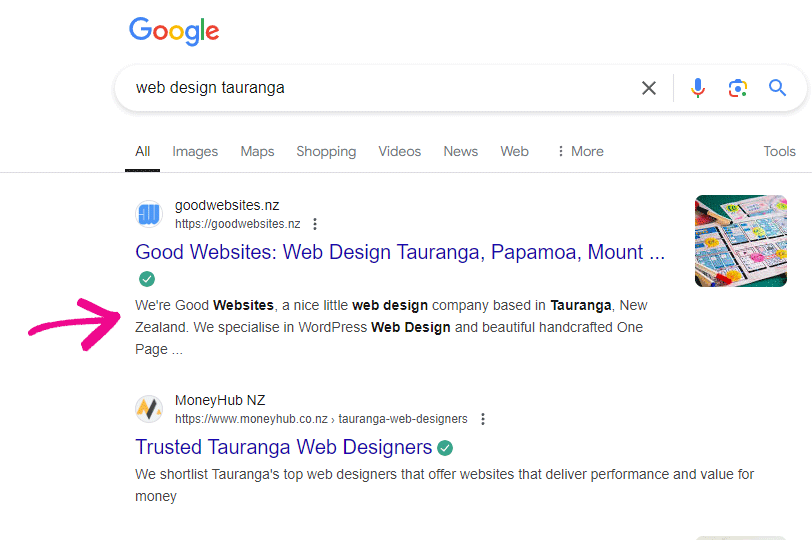A meta description is a short paragraph describing a webpage’s content. While it doesn’t directly affect your search engine rankings, it plays an important role in attracting visitors to click on your link in search results.
This is your chance to promote what your page offers and help searchers decide if it contains the information they need. A clear and compelling description with relevant keywords can greatly improve your click-through rate, resulting in more people visiting your site.

Why Does It Matter?
To make your meta description stand out, remember that Google and other search engines will bold keywords in the description when they match the search query. This helps draw attention to your link, making it more likely that users will click on it.
A Note About Google Rewriting Title Tags
More than 60% of the time, Google rewrites the description tag in search results. This happens when Google thinks your webpage is a great answer for a search query, but your original description tag doesn’t fully match the query. In these cases, Google will rewrite the description to make it more representative of your page and better match what users are searching for.
Best Practices for Writing Meta Descriptions
- Keep it concise
Aim for 150 to 160 characters. Descriptions longer than this will be cut off in search results, losing impact. - Be unique
Each page on your website should have a unique description that reflects its content. - Use important keywords
Include relevant keywords that people might be searching for, but make sure the description reads naturally and appeals to your audience.
While meta descriptions may not influence your rankings, they are essential for increasing your site’s visibility and attracting visitors. Crafting a well-written meta description can significantly impact your website’s clickthrough results!
